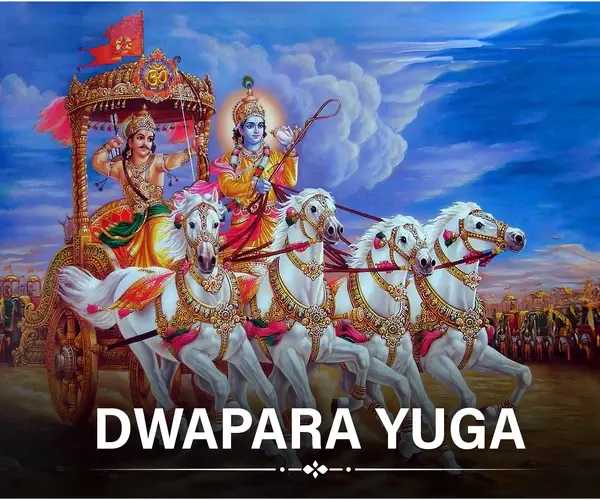Spice, Spirit, and Serenity: The Inspiring Life of Gayathri Amma
- harish segon

- May 21, 2025
- 7 min read
Updated: May 22, 2025
The 13th-century Persian poet Rumi compares love to a mother. He says, “We are born of love; love is our mother.”

Another poet believes that a mother is always forgiving: “The heart of a mother is a deep abyss at the bottom of which you will always find forgiveness.” — Honoré de Balzac.
Yet another poet, Elizabeth Akers Allen, pleads with time to make her a child again:
“Backward, turn backward, O Time, in your flight, Make me a child again just for tonight!
Mother, come back from the echoless shore,Take me again to your heart as of yore;
Kiss from my forehead the furrows of care, Smooth the few silver threads out of my hair;
Over my slumbers your loving watch keep;—Rock me to sleep, mother,—rock me to sleep.”
Rudyard Kipling pays tribute to mothers in his own way. He says that since God Himself could not be everywhere, He made mothers.
Poet Robert Frost goes a step further and is convinced of the power of mothers to bring peace to our planet. He asserts, “I am sure that if the mothers of various nations could meet, there would be no more wars.”

Kahlil Gibran describes a mother as “the most beautiful word on the lips of mankind.”
Another poet states that when you look into your mother’s face, you are gazing at the purest love in the world.
We all agree that the connection of the umbilical cord between mother and child embodies the purest form of love. But how would you describe saintly persons like Mother Teresa, who dedicated their lives to serving humanity? They firmly believed in the maxim Vasudhaiva Kutumbakam (Sanskrit: वसुधैव कुटुम्बकम्), which appears in Hindu texts such as the Maha Upanishad. It translates to “The world is one family.”
There are also ordinary people whose mission is to spread happiness everywhere. They are polite, meet everyone with a smile, and are always helpful. Such individuals believe in sharing a part of their income with those in need and with their loved ones. They are highly emotional, living by the heart, leaving little room for logic in their decisions.
Our Gayathri Amma is one such person. She is a senior citizen, totally “bindaas” (fearless), loves to talk, and is an excellent conversationalist. Compassionate, kind, and generous to the core, she is our immediate neighbour. Gayathri is an enigma—an intriguing puzzle. Once she makes up her mind to help someone or do something, no one can stop her. Yet, she has a lot of spice, and as the saying goes, you may love her or hate her, but you cannot ignore her.
Most young people tend to avoid elder relatives, but Gayathri enjoys a large social circle—surprisingly, many of her friends are much younger than she is.
Gayathri has been a working woman; she was a teacher at a private convent school in Delhi. She always maintained good rapport with colleagues and staff. Before I go further, you might wonder how I know so much about her. Well, her husband Rama Krishna is a dear friend of mine, and he loves to talk about his wife. I’m a patient listener.
Rama is the complete opposite of Gayathri—logical, prudent, someone who lives within his means. His wife, daughter, and son sometimes joke and call him “miser” or “kanjus” (stingy). As they say, opposites attract, and they complement each other well. Decades of marriage have strengthened their bond—they love and care for each other deeply.
Gayathri is surrounded by friends who consider her their mother and affectionately call her “Mom.” Most of them worked with her at the school. Whenever asked why they visit Gayathri so often, even as they could be enjoying life with younger friends, they reply, “Because this house is full of warmth and positive energy. We come of our own accord to enjoy the company of ‘Mom’.” Such is her charisma; not only her friends, but even their children now share the same sentiments.
I remember an incident narrated by Rama over a cup of coffee that further increased my respect for Gayathri. One evening, I was listening to old Bollywood classics when my doorbell rang. As I opened the door, Rama stood there, visibly dazed.
“Hope all is well, Rama,” I asked.
“Nothing is right in my house as long as Gayathri is there,” he replied.
Concerned, I inquired, “What has she done now?”
Rama then recounted the incident that had upset him. One of their neighbours had called him, saying that the society management had decided to collect voluntary donations to help the widow of an employee who had passed away a week earlier. However, the neighbour added that they could not donate as generously as Rama had done .
Immediately, Rama suspected Gayathri was involved. He thanked the neighbour and then called Gayathri, who looked sheepish and was trying to slip away from the room. “It’s no big deal,” she said casually. “I had accumulated ₹75,000 in my kitty and donated it all to support the widow of the deceased employee.”
Rama asked, “And how much are others donating?”
“Minimum ₹1,100 and maximum ₹5,000,” she replied. “But it’s my money, and I have every right to donate it to a worthy cause.”
I consoled Rama but knew in my heart , only someone like Gayathri could do something so generous. I deeply admired her large-heartedness. Later, the wife of the deceased employee refused to accept any donation money, stating that such acts would hurt her husband's soul in heaven. It truly reflected high values — even with limited means, she believed in doing the right thing.
Rama and I often discussed various topics over South Indian filter coffee. I buy my coffee beans from Coorg, roast and grind small quantities at a time, and brew it in a traditional steel filter. The aroma of this coffee is incredibly refreshing. Rama loves my brew.
One day, during such a coffee session, Rama shared a story about Gayathri that further increased my respect for her. Rama belonged to a lower-middle-class family and grew up in a joint family. They lived in a two-room government quarter assigned to Rama’s elder brother.Rama and Gayathri had been married for six months and were still getting to know each other.

She was a schoolteacher, and Rama was a central government employee. He had very little savings, but an important decision he took before marriage was to reserve a DDA flat in West Delhi. He paid ₹5,000 as booking amount, knowing that he’d need an additional ₹8,500 to be eligible for allocation. The total cost of the flat was ₹37,400, with a monthly installment of just ₹237.50—that was a golden opportunity to own a home.
Rama was in a dilemma: how to discuss this delicate matter with his wife, especially with no savings and no means to take a loan. He took Gayathri to Buddha Jayanthi Park, one of their favorite spots, gathered his courage, and shared his plans.
“Gayathri,” he said, “it’s entirely up to you to say yes or no . I booked a DDA flat before our marriage and now it’s time for the allotment. To proceed, we need to deposit another ₹8,500, and we have no savings.
Gayathri looked into Rama’s eyes and said without hesitation, “Tell me if you have a plan.”
He was hesitant but said, “Yes, I do. But promise me that even if you don’t like it, you will not be cross with me.”
Smiling, she responded, “Okay, I won’t be cross. Tell me your plan.”
He explained, “We could sell some jewellery and the Vespa scooter we got as dowry, and use that money.” Gayathri thought for a few minutes, and Rama’s heart pounded with anticipation. His palms were sweaty.
Finally, she opened her eyes, hugged him, and said, “Let’s do it. I want to live in my own house.” Rama could hardly believe his ears. How could his wife agree to part with her jewellery so easily? Tears welled up in his eyes.
“Love you, Gayathri,” he said, “I’ll remember this moment for the rest of my life.”
“But what if your parents ask about the jewellery?” he queried.
“Leave that to me,” she replied.
How could a woman agree to part with big chunk of her dowry . The incident revealed her detachment from material things and her steadfast focus on future. While narrating this incident , Rama became emotional and added, “You know, she’s my lifeline, and I love her deeply. She adds spice and zest to my life. Maybe that’s why we’re such a good pair. Opposites attract, after all.”
Gayathri’s compassion and kindness extend beyond her family. She has a soft corner for day labourers, street vendors, hawkers, and rickshaw pullers. She believes that they toil under harsh weather conditions while we enjoy the comforts of air conditioning at home.
The Dalai Lama, a champion of peace, places compassion above religion. He says that love and compassion are necessities, not luxuries — without them, humanity cannot survive. “My religion,” he states, “is kindness.” His message is clear: our primary purpose in life is to help others. If we cannot assist them, at the very least, we should refrain from causing harm. His mantra is simple: "If you want to be happy, practice compassion; if you want others to be happy, practice compassion."
I believe Gayathri Amma embodies this philosophy. Recently, we saw an example of her compassion that truly moved me. During Ramadan, when Eid was approaching, her daughter’s best friend—a Muslim girl—came to visit them . Gayathri Amma welcomed her with a warm hug and a big smile. She gifted her a traditional Indian dress and said, “Wear this on Eid.”
The girl’s eyes filled with tears. “Aunty,” she said, “my father, who is no longer with us, used to buy me a new dress every Eid.”
Gayatri Amma looked at her with kindness and said, “From now on, I will give you a new dress every Eid.” She kissed her and added, “Allah bless you.”
Iam sure , that girl will never forget Gayathri Amma and her kindness .
Despite her many wonderful qualities, Gayathri Amma is quite impulsive—sometimes she acts quickly and then regrets her decisions.
Just the other day, Rama told me with a smile about an incident. A friend had sent them some premium apples from Kinnaur in Himachal Pradesh. Before the apples arrived, Gayathri Amma told a very young friend of hers about it. The girl exclaimed, “Aunty, I love Kinnaur apples and would love to have some.” When the apples finally arrived late that evening, Gayathri rushed to send four of them to her young friend.
Her daughter protested, “She lives 35 kilometers away. The delivery will cost at least ₹750, which is double the cost of the apples.”
But Gayathri was insistent. “I don’t care if it costs ₹1,000. Send them immediately,” she said.
That’s typical of her—she’s impulsive but always doing things from the heart.”
And that’s why we all enjoy her company despite her impulsiveness.
That is Gayathri Amma—a bundle of good, bad, and sometimes unpredictable qualities. But her goodness always outweighs her faults. I believe we can all learn something from her life—spreading happiness, practicing compassion, and living with love should be our guiding principles.
Let’s make kindness, love, and compassion the mantra of our lives.




Comments